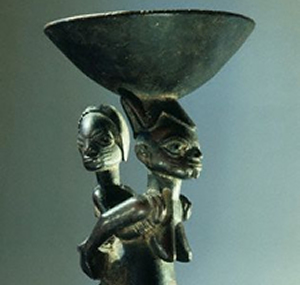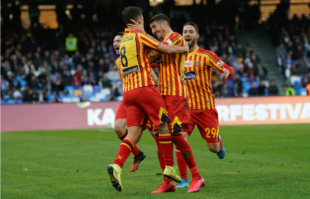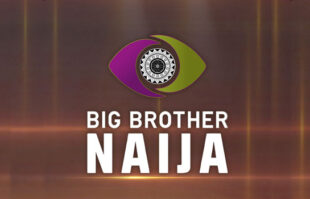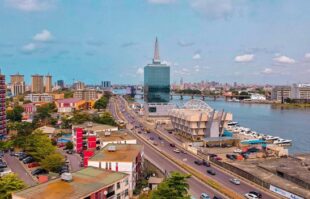Nigeria has many festivals, some of which date back to the time before the major faiths arrived in her racially and culturally varied nation. The festivals are used to celebrate literary works and also promote literary culture in Nigeria.
The number of literary and artistic festivals keeps growing. Some of them are the Association of Nigerian Authors Convention (ANAC), Abuja Literary and Arts Festival (ALitFest), Kaduna Book and Arts Festival (KABAFEST), Aké Arts and Book Festival (AABK), and Lagos Book and Art Festival (LABAF).
The following is the list of literary festivals being celebrated in Nigeria.
1. Aké Arts and Book Festival (AABK)
The Nigerian author Lola Shoneyin established the Aké Arts and Book Festival in 2013, which is an annual literary, artistic, and cultural celebration held in Abeokuta, Nigeria. Although it has included both emerging and well-known authors from around the globe, its main objective has been to support, foster, and celebrate creativity across a range of genres on the African continent. The festival’s inaugural Lagos run in 2018 took place from October 24 through October 27 under the banner of “Fantastical Futures.”

The largest yearly meeting of authors, editors, reviewers, and readers on the African continent has been dubbed the Aké Arts and Book Festival. Shoneyin asserts she founded the event because she “wanted a location where intellectuals and thinkers might come together and debate about African concerns on African land.” The festival is named for Aké, a town in Abeokuta, Ogun State, where Wole Soyinka, the first African to win the Nobel Prize for Literature, was born in 1934.
2. Chinua Achebe Literary Festival (CALF)
The Things Fall Apart (1958) novelist and Nigerian literary critic Chinua Achebe is the subject of the annual Chinua Achebe Literary Festival, which honours and celebrates his writings and significant contributions to literature. He lived between November 16, 1930, and November 21, 2013, when he passed away in Massachusetts.
Izunna Okafor, an award-winning Nigerian writer, journalist, and advocate for the Igbo language, as well as the state coordinator for the Society of Young Nigerian Writers in Anambra State, founded the literary festival in 2016, three years after the passing of Achebe.
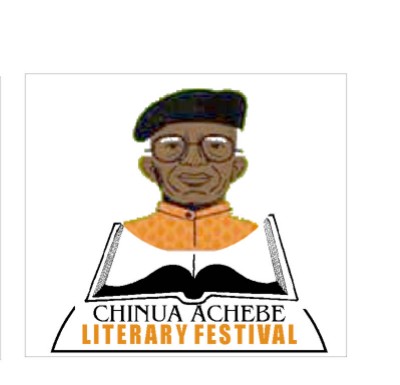
The celebration has taken place every year on Chinua Achebe’s birthday (16 November) in the Prof. Kenneth Dike Central E-Library in Awka, the capital of Achebe’s native Anambra State. Each year before the event, the organisers would post a “Call For Submissions” encouraging authors to create and submit poems and essays in honour of Achebe, which they would then publish in an anthology called the “Chinua Achebe Poetry/Essay Anthology.” The annual anthology, which is often released and launched on the day of the literary festival, has drawn writers from all over the world and included their works, including Mbizo Chirasha of Zimbabwe.
3. Kaduna Book and Art Festival (KABAFEST)
The inaugural Kaduna Book and Arts Festival, or KABAFEST, was held in July 2017 and is an annual literary, cultural, and artistic event in Kaduna State, Nigeria. In cooperation with the Kaduna State Government and the Gusau Institute, it was organised by the Book Buzz Foundation, which also puts on the yearly Aké Arts and Book Festival. It was also the first annual book festival in northern Nigeria. There is a preconception that Northern Nigeria is an unsuitable location for books and writing due to its strict culture. In order to correct this misunderstanding, the Kaduna State Government came up with KABAFEST.

According to Lola Shoneyin of Book Buzz, who founded the festival, it was her intention to “foster tolerance and understanding through dialogues about books, culture, the arts, and society,” as well as to “create new and exciting opportunities for social and cultural interaction and the celebration and promotion of creativity in the Northern region of Nigeria.”
4. Lagos Book and Art Festival (LABAF)
The Committee for Relevant Art (CORA), a cultural organisation with a base in Nigeria, established the Lagos Book and Art Event (LABAF), an annual arts festival, in 1999. The LABAF offers a variety of events, including pre-festival activities like book treks, as well as main festival events like musical performances, book readings, movie screenings, a publishers’ forum, book and art exhibitions, panel discussions, colloquia, symposiums, book presentations, cultural exhibitions, book reviews, a green festival, and other activities. The event also provides competition and mentoring opportunities for Nigerian university and basic and secondary school students, enabling their participation. The festival also chooses many books each year that are highlighted as Books of the Festival and contribute to the discourse of the festival for that particular year.
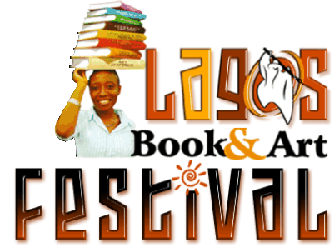
5. Nigeria International Book Fair (NIBF)
Nigeria hosts an annual cultural event called the Nigeria International Book Fair (NIBF). Being the only international book fair in Nigeria and the second largest international book fair in Africa, it is well known to have the highest attendance in the entire continent. At her yearly fair, NIBF brings together book lovers, including authors and poets, who are typically involved in the production of print, audio, and digital books around the nation.

The festival’s primary goal is to advance and strengthen reading habits among Africans in general and Nigerians in particular. The NIBF hosts’ publishers, retailers, artists, writers, exhibitors, and readers who present and offer their books for sale at reduced prices every second week of May.
6. Port Harcourt Book Festival
Since 2008, the Rivers State Government has supported the Port Harcourt Book Festival, an annual literary event held in Port Harcourt, Rivers State, Nigeria. It is hosted by the Rainbow Book Club. Governor Amaechi of Rivers State established the Garden City Literary Festival, which is today known as the Port Harcourt Book Festival. Every year, hundreds of book lovers travel to Garden City for this six-day festival that features a book fair, writers’ seminars, and a number of other activities. Authors who are well-known have previously attended the Festival and have been guests there.
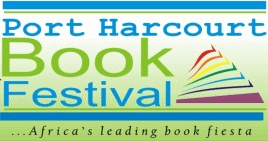
Koko Kalango, who came up with the idea for the festival in the first place, created it as a way to boost tourism and raise reading awareness in the city of Port Harcourt and its surrounding areas. The festival, which was first slated to take place on September 8 each year to coincide with the United Nations’ International Literacy Day, has since grown and received excellent reviews.
7. The 9mobile Prize for Literature
The 9mobile Prize for Literature, which was formerly known as the Etisalat Prize for Literature and is sponsored by the 9mobile telecommunications firm, honours newly published African authors. The winner receives £15,000 (nearly N6 million) and a fellowship to pursue creative writing at the University of East Anglia. Jowhor Ile of Nigeria won the 2016 prize for his book, “And After Many Days.” The 2017 prize’s shortlist includes a South African, two Nigerians, and two Nigerians. They include Marcus Low’s “Asylum,” Lesley Nneka Arimah’s “What It Means When a Man Falls from the Sky,” and Aybámi Adébáy’s “Stay with Me” (both from Nigeria).

8. The Association of Nigerian Authors’ Convention (ANAC)
Each year, a new state hosts the annual convention/literary and arts festival of the Association of Nigerian Authors (ANA). The city of Enugu, where writers and artists gathered to talk and network the previous year, served as the host city. At the 2019 event, which was held from October 31 to November 3, Prof. E.E. Sule served as the keynote speaker, and Prof. Ernest Emenyonu served as a special guest. Its theme was Literature, Nationalism, and the Poetics of Integration.
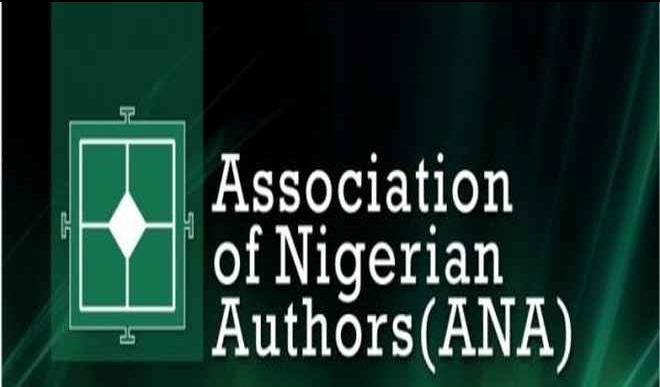
Awards for various prizes sponsored by the association are frequently given out during the ANA convention. These prizes include, among others, the ANA/NECO Teen Author Prize and the ANA/NDDC Ken Saro Wiwa Prize for Prose.
9. The NLNG Prize
The Nigerian Prize for Literature, sometimes known as the NLNG Prize because it is sponsored by the Nigerian Liquefied Natural Gas business, is possibly the most lucrative honour a Nigerian author can get. This prize, which is worth $100,000 (about N40m), alternates each year between prose, poetry, theatre, and children’s literature. Soji Cole won this year for his play, “Embers.” Ikeogu Oke, last year’s poetry category winner, passed away a few weeks ago, and the literary community is still in mourning for his enormous contribution. The Heresiad, written by Oke, was the winner. The award for the best piece of children’s literature will be given out the following year, and authors are already getting ready.
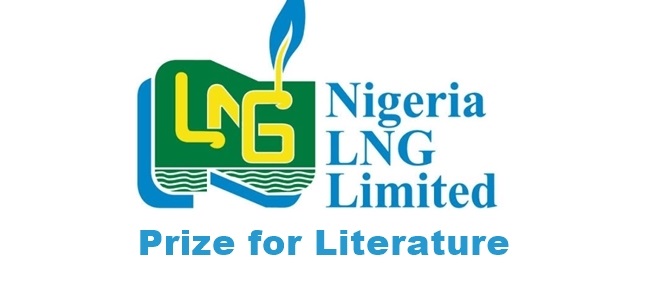
10. The Quramo Writers’ Prize
For up-and-coming writers in Africa, there is the Quramo Writers’ Prize (QWP). It aspires to inspire and motivate a new group of exceptional authors by giving previously unknown talent the chance to receive published exposure and support. The QWP began its contest for unpublished authors in April 2017 and invited authors to submit previously unpublished works of fiction and nonfiction. There are two reward categories: one for everyone and one for kids under 16. At the first awards presentation on October 2, 2017, a winner in each category was declared. The novels of the inaugural prizewinners, 13-year-old Arshiya in the junior category for “The Forgotten“; and Samuel Monye, who won for his account of a young boy travelling the road of human trafficking in Libya, are being published this year by Quramo Publishing.

11. The Wole Soyinka Prize
In honour of Nigerian Nobel Laureate Wole Soyinka, the Lumina Foundation founded the Wole Soyinka Prize for Literature in Africa. The prize, worth $10,000 (more than N3 million), is given every two years to the best literary work created by an African. Tanure Ojaide of Nigeria and Harriet Arena of Uganda were jointly named the 2018 prize winners a few days ago.
Novelist Sefi Atta for “Everything Will Come” and the South African Sifiso Mzobe for “Young Blood” were previous winners of the award.
